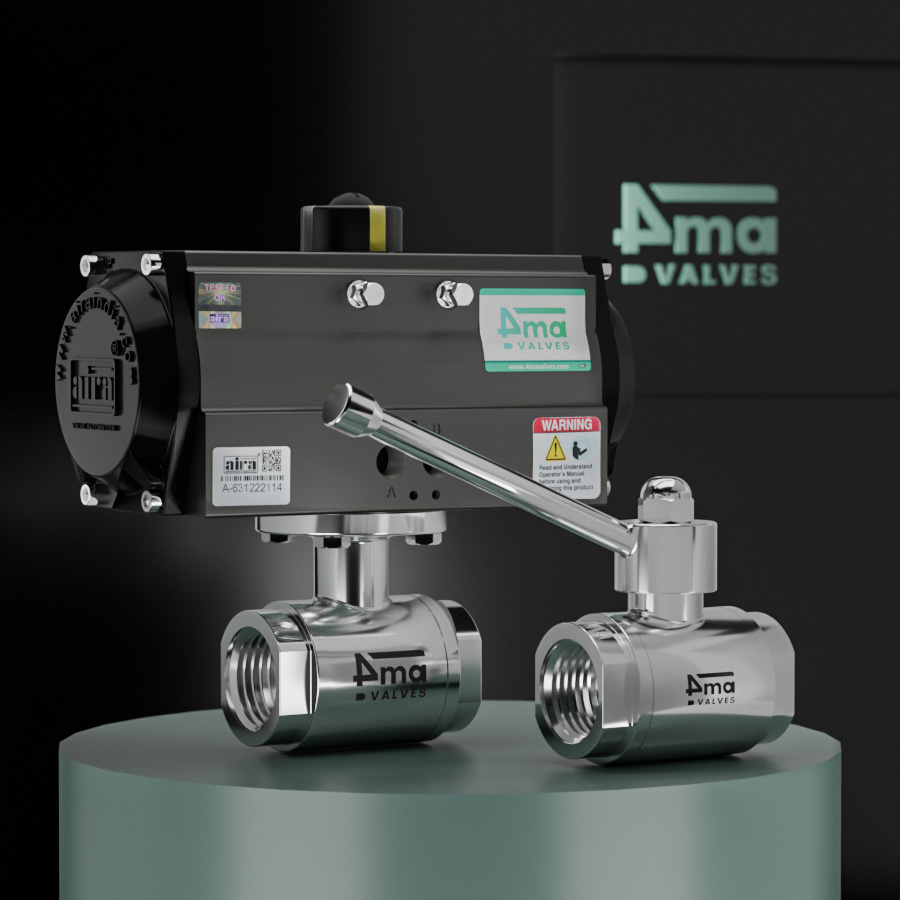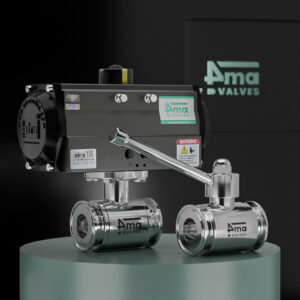Top 5 Sanitary Valve Types and Their Uses in Process Automation

Sanitary valves are specially designed flow control devices used in clean applications such as food and beverage production, pharmaceuticals, cosmetics, and biotechnology. Their primary function is to ensure hygienic processing without contamination, while still providing effective and reliable flow control. As industries evolve towards more automated and efficient operations, the role of sanitary valves in process automation has become more important than ever.
In this article, we’ll explore the top 5 types of sanitary valves and how they are used in automated process systems. We’ll also explain why choosing a reliable sanitary valve manufacturer in India is essential for cost-effective and high-quality solutions.
Top 5 Types of Sanitary Valves
1. Sanitary Butterfly Valve
Sanitary butterfly valves are widely used in food, dairy, and beverage industries due to their compact design and quick shut-off capability. Operated manually or through pneumatic/electric actuators, these valves offer excellent flow control with minimal pressure drop.
Use in Process Automation:
They are often used in systems requiring frequent cleaning (CIP/SIP processes) and where space is limited. In automated systems, butterfly valves are typically integrated with sensors and actuators for remote control.
2. Sanitary Diaphragm Valve
These valves feature a flexible diaphragm that comes in contact with the media, making them ideal for sterile and aseptic processes in the pharmaceutical and biotech sectors. Their design eliminates dead zones where bacteria could grow.
Use in Process Automation:
Highly suitable for precise dosing and batch control, sanitary diaphragm valves are often automated in sterile environments. Their smooth interior and leak-proof operation make them perfect for automated cleanroom applications.
3. Sanitary Ball Valve
A sanitary ball valve uses a polished stainless steel ball with a hole through the center to allow or block flow. These valves are ideal for viscous liquids, syrups, or semi-solid materials used in the food and cosmetics industries.
Use in Process Automation:
Automated sanitary ball valves are used for reliable and repeatable open/close operations in high-viscosity systems. Their low torque operation makes them energy-efficient in automated lines.
4. Sanitary Check Valve
Sanitary check valves ensure unidirectional flow, preventing backflow that could lead to contamination. They are commonly used in beverage, brewery, and water purification systems.
Use in Process Automation:
In process automation, these valves work silently in the background, ensuring pressure balance and system integrity. They help maintain fluid purity in systems controlled by PLCs (Programmable Logic Controllers).
5. Sanitary Pressure Relief Valve
This type of valve is used to protect the system from over-pressurization. When pressure exceeds a defined limit, the valve automatically opens to relieve pressure and prevent damage or contamination.
Use in Process Automation:
These valves are critical in maintaining safe pressure levels in automated systems, particularly in high-temperature or carbonated beverage processes. Often integrated with pressure sensors, they form an important part of smart safety control systems.
Integration with Process Automation Systems
Modern sanitary valves are built for integration into smart, automated plants. Here’s how they enhance productivity:
-
Actuator Compatibility: Most valves support pneumatic or electric actuators, allowing remote operation through SCADA or PLC systems.
-
Sensor-Enabled Monitoring: Advanced sanitary valves can be fitted with proximity sensors, valve position indicators, and pressure transmitters for real-time monitoring.
-
Precise Control: Especially in pharmaceutical dosing or beverage carbonation, even a minor fluctuation in flow or pressure can alter product quality. Sanitary valves ensure consistent flow under changing process conditions.

Industry-Specific Use Cases
Dairy and Beverage Industry:
-
Sanitary butterfly and ball valves are used for milk, juices, syrups, and carbonated beverages.
-
Valves are cleaned via CIP, making them ideal for continuous production cycles.
-
Diaphragm valves help prevent cross-contamination during flavor changes or between milk and plant-based beverages.
Pharmaceutical Industry:
-
Sanitary diaphragm valves are a standard for sterile filtration systems, bioreactors, and injectable production lines.
-
They maintain zero-dead-leg configurations, reducing the risk of microbial growth.
-
Pressure relief valves are critical in autoclave and fermentation systems to maintain safety.
Cosmetics and Personal Care:
-
Sanitary ball valves handle viscous materials like creams, lotions, and gels.
-
Stainless steel construction ensures no chemical interaction or residue retention.
Brewery and Distillery:
-
Butterfly valves with electric actuators allow precise control over fermentation, transfer, and bottling.
-
Check valves ensure clean, unidirectional fluid movement, maintaining product quality and consistency.
Why Choose a Sanitary Valve Manufacturer in India?
India has emerged as a global hub for high-quality, cost-effective sanitary valve manufacturing. Choosing a trusted sanitary valve manufacturer in India offers several benefits:
-
International-quality products with certifications like ISO, CE, and 3A
-
Customizable valve options to fit unique process requirements
-
Affordable pricing without compromising on hygiene or performance
-
Global supply chain capabilities for fast delivery and support
-
Advanced machining and polishing techniques for ultra-clean finishes
Whether you’re operating a dairy processing plant or a pharmaceutical production unit, Indian manufacturers offer hygienic flow control solutions that meet global standards.
Final Thoughts
As industries move toward higher levels of automation and stricter hygiene standards, the choice of sanitary valves becomes increasingly critical. From butterfly to diaphragm, each type serves a specific function in a clean processing environment. Understanding the right application of these valve types can help you optimize performance, safety, and compliance.
For the best combination of quality, customization, and cost, consider partnering with a reputable sanitary valve manufacturer in India who understands both your technical needs and regulatory requirements.









